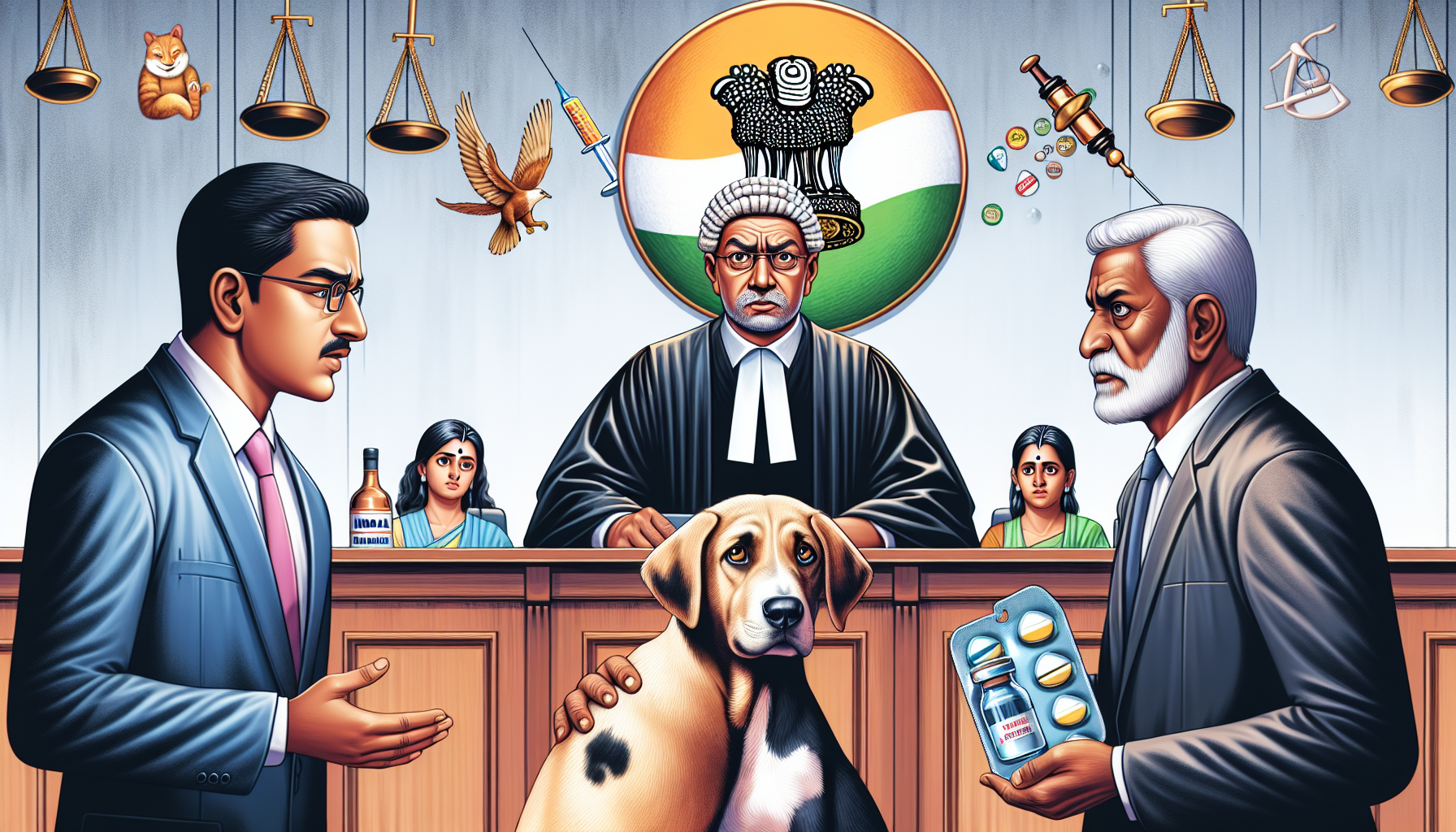- Empty cart.
- Continue Shopping
Supreme Court Criticizes Government’s Inaction on Rabies Vaccination Appeals – Anti-Rabies

Anti-Rabies :
Supreme Court Criticizes Government’s Inaction on Rabies Vaccination Appeals
The Supreme Court of India recently made headlines by firmly criticizing the government of Kerala and the Union Government for failing to respond to a plea about the urgent need for anti-rabies vaccinations. In a dramatic statement, the court emphasized that “dogs won’t wait for your deliberations to bite,” underscoring the severity of the issue at hand. This confrontation shines a glaring spotlight on a critical public health concern that has long been overlooked.
The Implications of Rabies
Rabies is a deadly viral disease that affects both animals and humans. The World Health Organization (WHO) states that rabies is nearly always fatal following the onset of clinical symptoms. In India, rabies takes a significant toll annually, with thousands of fatalities and countless more individuals forced to endure traumatic post-exposure treatments.
The lack of a comprehensive rabies vaccination program is a ticking time bomb, particularly in rural areas where access to medical services is limited. Preventive measures are crucial, especially for a disease that is entirely preventable through timely vaccination and proper animal control measures.
Anti-Rabies – Supreme Court’s Stern Warning
The Supreme Court’s remark serves as a powerful wake-up call to the authorities. The justices pointed out that bureaucratic inertia is unacceptable when public health is at stake. Delays and indecisions can literally cost lives. The bench, which included Justices Sanjay Kishan Kaul and M.M. Sundresh, expressed immense frustration over the lack of urgency demonstrated by the concerned authorities.
Key Points Highlighted by the Court
- Immediate Action Required: The court underscored the necessity for immediate measures to ensure that anti-rabies vaccines are accessible to all communities, especially those most vulnerable to dog bites.
- Public Health Priority: The safety and health of citizens should be the utmost priority, surpassing bureaucratic and administrative hurdles.
- Accountability: The court’s strong language serves as a call for accountability from government bodies, stressing that delays in addressing such critical issues will not be tolerated.
Anti-Rabies – Root Causes of the Crisis
The rabies crisis in India can be attributed to several factors:
- Stray Dog Population: India has one of the highest populations of stray dogs in the world, a major source of rabies.
- Lack of Vaccination: A significant number of dogs remain unvaccinated against rabies due to logistical challenges and lack of resources.
- Public Unawareness: Many citizens are unaware of the steps they need to take after a dog bite, leading to delayed or inadequate treatment.
Anti-Rabies – Steps Towards Mitigation
Combating the rabies epidemic requires a multifaceted approach. Here are some steps that can be undertaken:
- Comprehensive Vaccination Campaign: Launching large-scale vaccination drives to ensure both stray and domesticated dogs are vaccinated.
- Public Awareness Programs: Educating the public about the risks of rabies and the importance of timely medical intervention post-exposure.
- Improved Healthcare Access: Ensuring that anti-rabies vaccines are available in all medical centers across the country, particularly in rural regions.
- Stray Dog Management: Implementing effective animal birth control programs to manage the stray dog population humanely.
Community Response and Responsibility
While the government plays a critical role, community involvement is equally essential for effectively mitigating the rabies threat:
- Local Vigilance: Communities must actively participate in local health initiatives and report cases of stray dog bites promptly.
- Collaboration with NGOs: Working alongside non-governmental organizations can facilitate the distribution of vaccines and educational materials.
- Safe Animal Practices: Pet owners should ensure their animals are vaccinated and should adopt safe practices to avoid conflicts with stray dogs.
Anti-Rabies – International Benchmarking
India can look to other countries for inspiration and adopt best practices that have proven effective. For instance:
- Thailand: Achieved a rapid decline in rabies cases through widespread vaccination drives and public education.
- Philippines: Implemented successful community-based rabies control programs, involving local governments and community leaders.
Conclusion
The Supreme Court’s criticism serves as a clarion call for immediate action against the rabies threat in India. The alarming rise in dog bite incidents and ensuing rabies cases necessitates an urgent and robust response from both the government and the community.
By prioritizing public health, enhancing vaccination campaigns, and fostering community responsibility, India can pave the way for a future free from the dread of rabies. Immediate, collective action is the only way forward, and it is essential that all stakeholders rise to meet this challenge head-on.

















